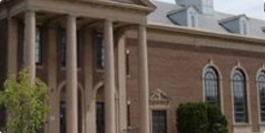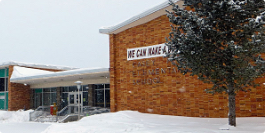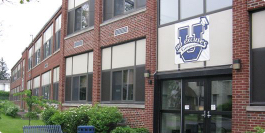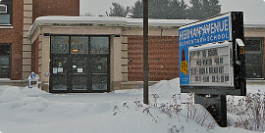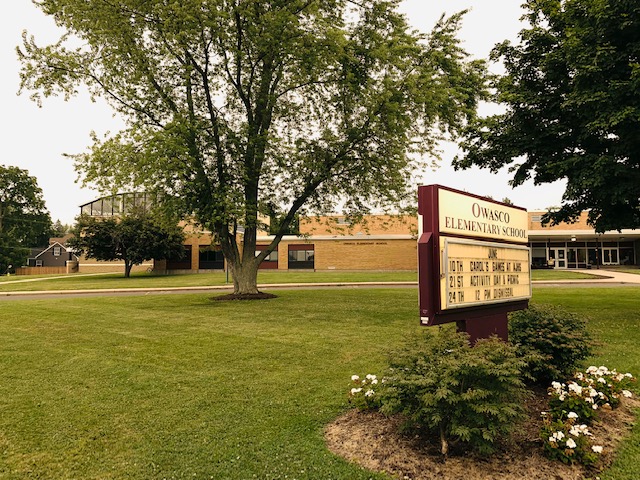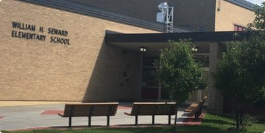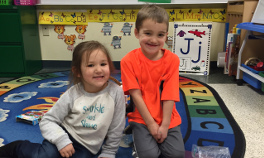Auburn district's libraries aim to develop 'skill and thrill' of reading
Christopher SciriaAECSD Public Information Specialist
The joy of reading that can last a lifetime starts at the elementary school level, and the Auburn Enlarged City School District’s libraries are trying to spur students to develop the “skill and thrill” for it.
The district’s five elementary school libraries have programs to get books into the hands of students to encourage a culture of reading. One such program at Casey Park is “A Book A Day.” Teachers receive five picture books on Monday to distribute to their students.
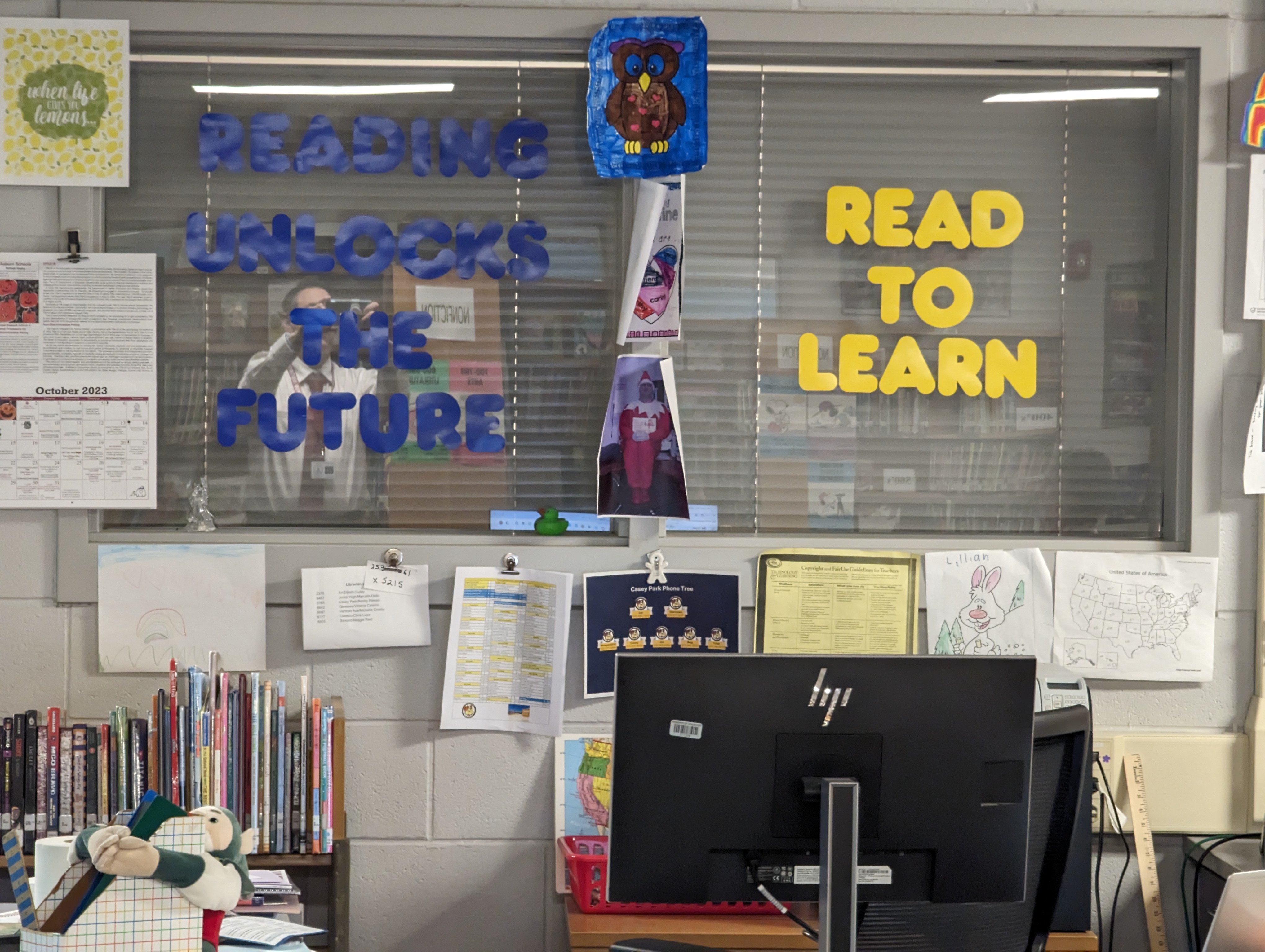
“The idea is they read a book a day, whether they've got 10 minutes here, five minutes there, whenever they can fit it in,” said Penny Pitman, Casey Park’s librarian. “It's to encourage reading at any time. Teachers return the books on Friday and get a new set of books the following Monday.”
The books encompass a wide variety of genres and are geared toward kindergarteners through third graders with another group for fourth and fifth graders. Sixth graders get to read chapter books.
“I try to choose a variety, a range, some funny, some sad, in some cases, some more educational, some lighter,” Pitman said.
The libraries also host open periods where students can come in and check out books.
“Open Library is every day 8:35 to 9 and then 2:30 to 3. Students don’t have to wait for their library day to exchange or renew their books. If it takes a student three months to read “Harry Potter,” that’s fine. They can renew as many times as they need to finish a book.
“We're hoping that students get lost in books, improve their reading skills, and develop a lifelong love for learning,” Pitman added.
It’s a different challenge at the junior high and high school levels where students read more for their classes and spend their leisure time on smartphones and video games.
“It's a fact that students' interest in reading drops off once they get past elementary school. That is backed up by the research,” said Beth Cuddy, who works at the high school library and is facilitator for the department.
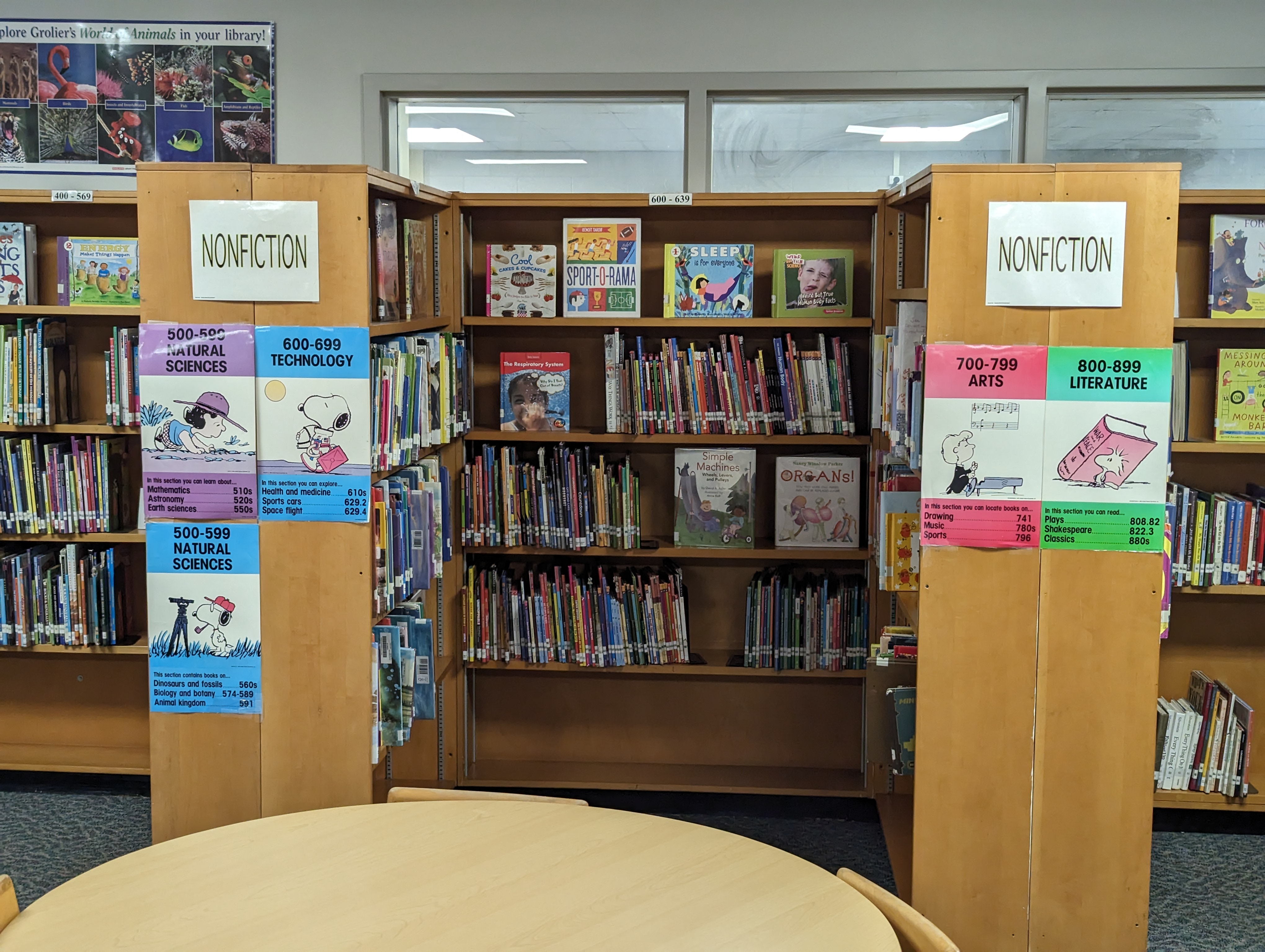
Cuddy has talked to students she knew when she was at an elementary school to find out why they don’t read as much.
“I had students say to me that they would love to read, they just have so much reading to do for school that they don't have time to read for pleasure anymore,” she said.
At the beginning of the school year, Cuddy speaks to English teachers to bring their classes to get familiar with the library and its programs and to encourage student involvement. The library offers a wide variety of books to appeal to a student’s interests.
“A big part of our role is the diverse collection that we have available for students to access,” Cuddy said. “A wide variety of resources, a wide variety of genres, that's a way to provide a lot of choice because a lot of times students might not like reading because they haven't found the right book.”
If students aren’t going to the library, Cuddy is bringing that experience to them by putting a collection of books in an English classroom to encourage them to read.
“The hope is that if there's students that never get down here, well there's another opportunity to check out books,” she said. “I'm just trying to get more books available for more students that don't require physical space.”
Cuddy says the high school and junior high libraries plan to host author visits which she hopes inspires students to start writing. Jarrett J. Krosoczka, a New York Times bestselling author of more than 40 books and a National Book Award finalist, is scheduled to come to Auburn High School this March. Krosoczka is best known for his “Lunch Lady” graphic novels and select volumes of the “Star Wars: Jedi Academy” series.
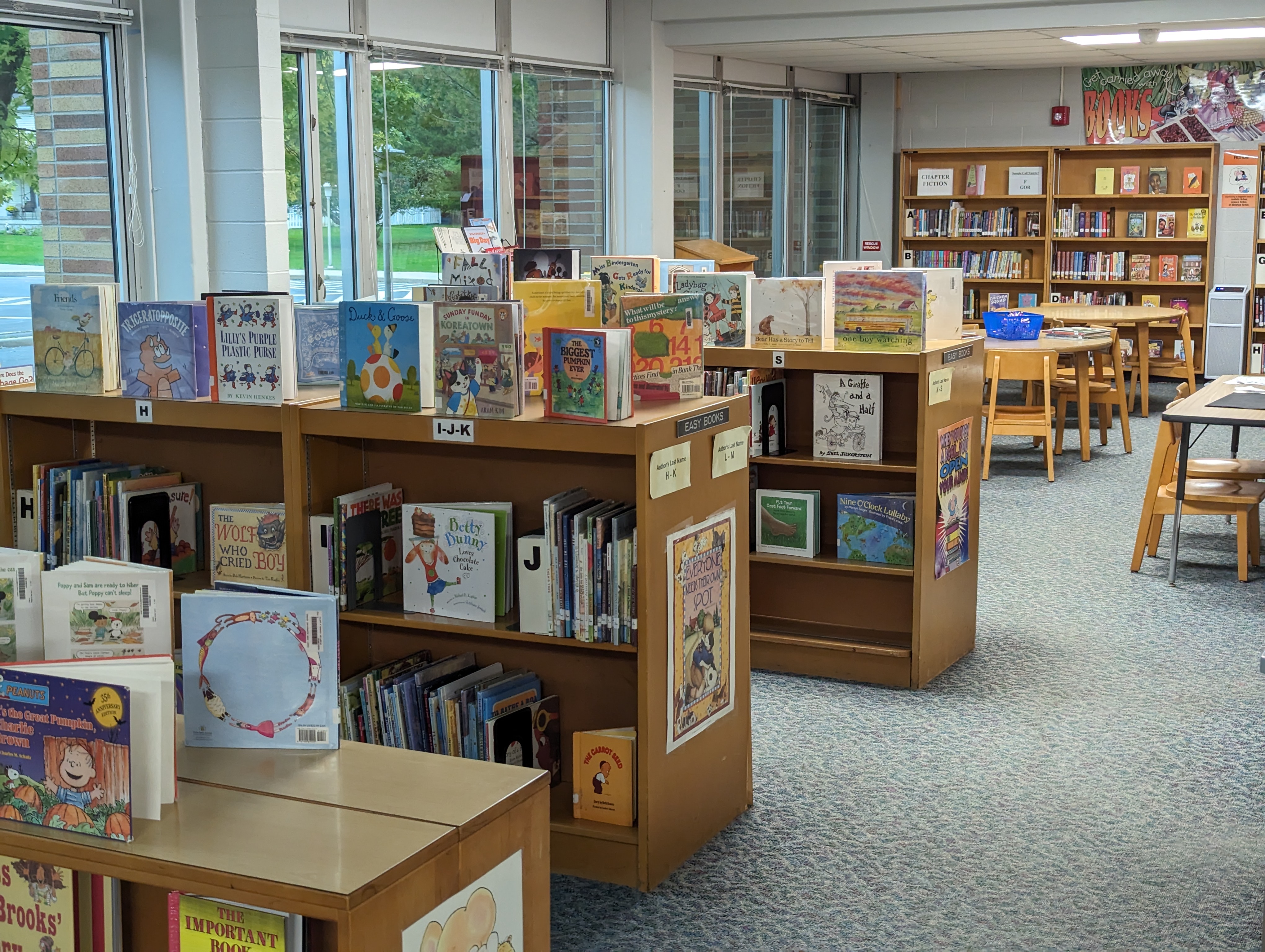
Krosoczka was raised by his grandparents because his mother was addicted to drugs. Reading and drawing helped him through a tough childhood. Cuddy hopes Krosoczka can inspire Auburn students and show that they can have a career as a writer and illustrator.
"I'm hoping the visit will spark students' creativity,” she said. “His message is so important, how art and literature saved him. I hope students can see how literature can change their lives. It's essential."



